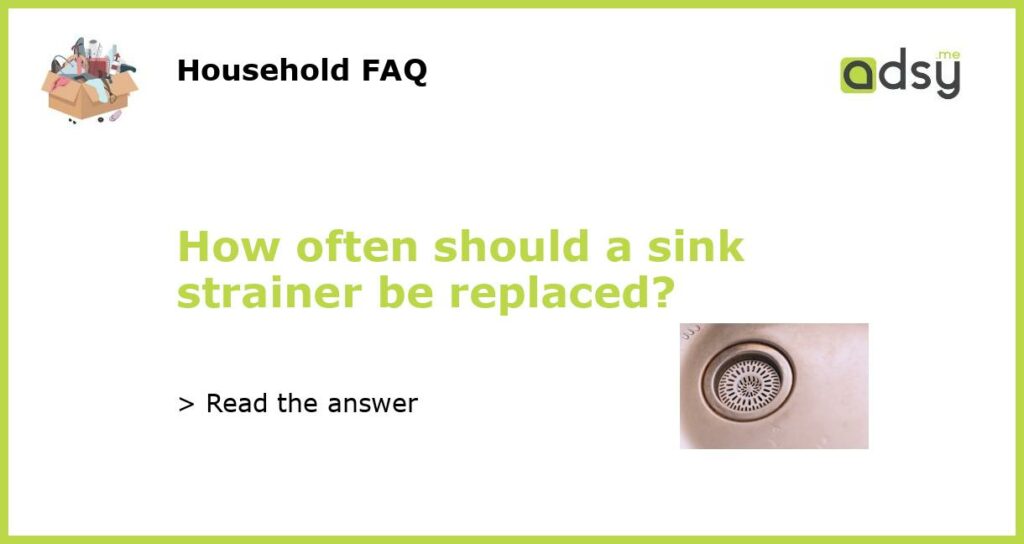How often should a sink strainer be replaced?
Replacing a sink strainer may not be at the top of your to-do list, but it is an important maintenance task that should not be overlooked. Over time, sink strainers can become clogged with debris and lose their effectiveness. The frequency at which you should replace your sink strainer depends on various factors, including usage and maintenance. In this article, we will discuss how often a sink strainer should be replaced and provide some tips for keeping your strainer in good condition.
Factors That Affect the Lifespan of a Sink Strainer
Several factors can impact how long a sink strainer will last before needing replacement. These include:
- Usage: If you have a busy household with multiple people using the sink regularly, your strainer may need replacing more often. The more frequently the sink is used, the more debris and food particles it will collect, leading to faster clogging.
- Maintenance: Regular cleaning and maintenance can extend the lifespan of a sink strainer. If you regularly clean your strainer and remove any trapped debris, it is less likely to become clogged and may last longer.
- Quality of the strainer: The quality of the sink strainer can also impact its lifespan. Opting for a high-quality strainer made from durable materials can help it last longer and perform better.
- Type of sink: Different sinks may require different types of strainers, and the type of sink you have can also affect how often the strainer needs to be replaced. For example, sinks with garbage disposals may need more frequent strainer replacement due to the additional wear and tear.
Signs It’s Time to Replace Your Sink Strainer
While the lifespan of a sink strainer varies, there are certain signs that indicate it may be time for replacement:
- Difficulties in draining: If you notice that water is not draining as quickly as it used to, or if water starts backing up in the sink, it could be a sign that the strainer is clogged and needs replacing.
- Unpleasant odors: A foul smell emanating from your sink can indicate a buildup of food particles and debris in the strainer.
- Rust or corrosion: Over time, sink strainers can develop rust or corrosion, which can impact their performance and appearance. If you notice rust or corrosion on your strainer, it is time for a replacement.
- Visible damage: Any visible damage, such as holes or cracks in the strainer, should be taken as a sign that it needs replacement.
Tips for Maintaining Your Sink Strainer
While eventually, all sink strainers will need to be replaced, you can extend their lifespan and keep them in better condition with regular maintenance. Here are a few tips:
- Clean the strainer regularly: Remove any trapped debris and give the strainer a thorough cleaning at least once a week. This will prevent buildup and improve its performance.
- Avoid pouring grease down the drain: Grease can solidify and clog the strainer. Dispose of grease properly in a separate container instead of pouring it down the drain.
- Use a drain stopper: Using a drain stopper can prevent larger food particles from entering the drain and accumulating in the strainer.
- Consider investing in a high-quality strainer: Spending a little more money on a durable and well-designed strainer can save you money in the long run as it will last longer and perform better.
- Inspect the strainer regularly: Take a close look at your sink strainer every few months to check for any signs of damage or clogging. Promptly replace it if necessary.
The Bottom Line
While the lifespan of a sink strainer depends on various factors, it is generally a good idea to replace it every 1-3 years. Regular maintenance and proper usage can help extend its lifespan and ensure optimal performance. If you notice any signs of clogging, damage, or reduced effectiveness, it is best to replace the strainer sooner rather than later. By staying proactive and taking care of your sink strainer, you can avoid larger plumbing issues down the line.






